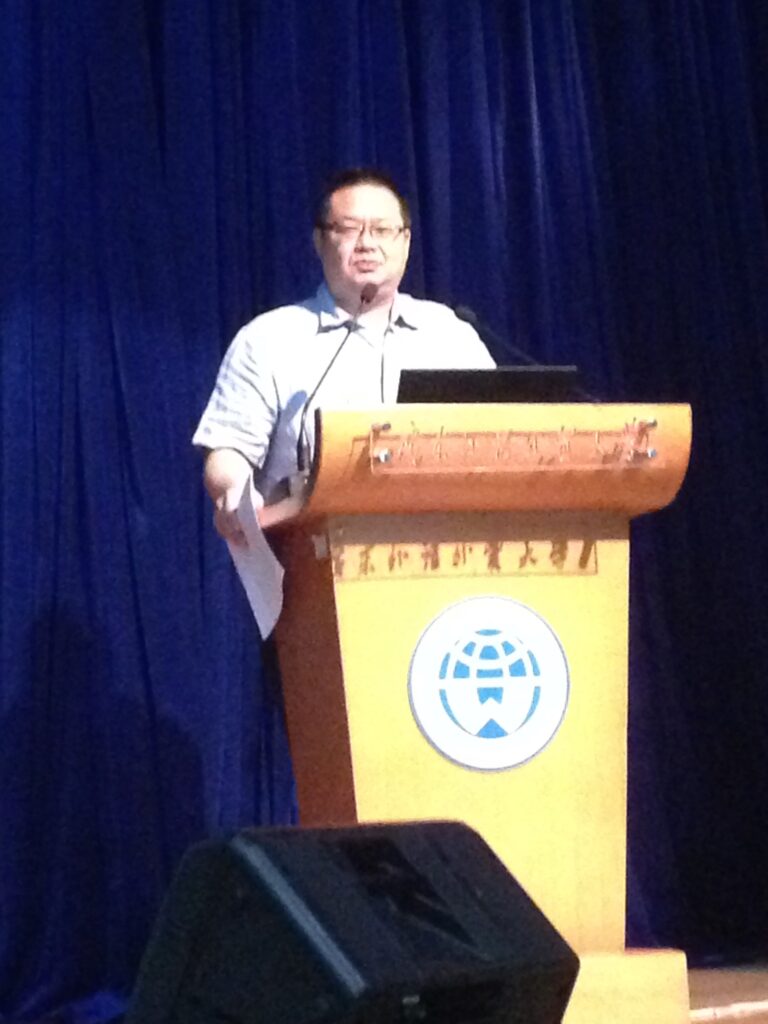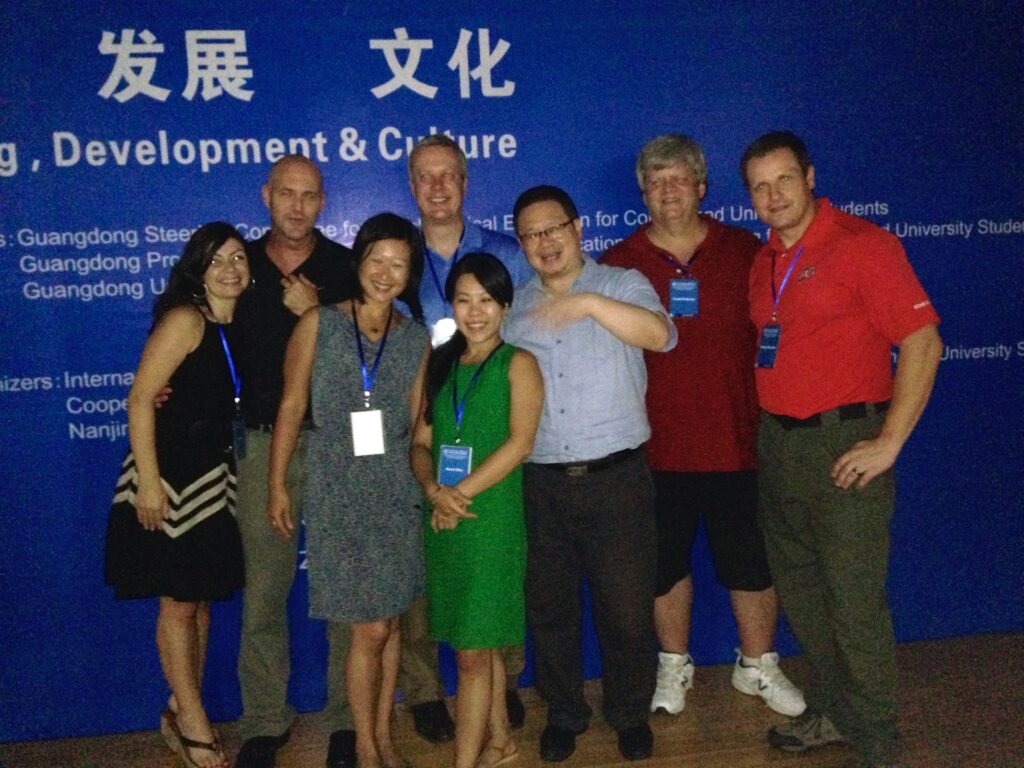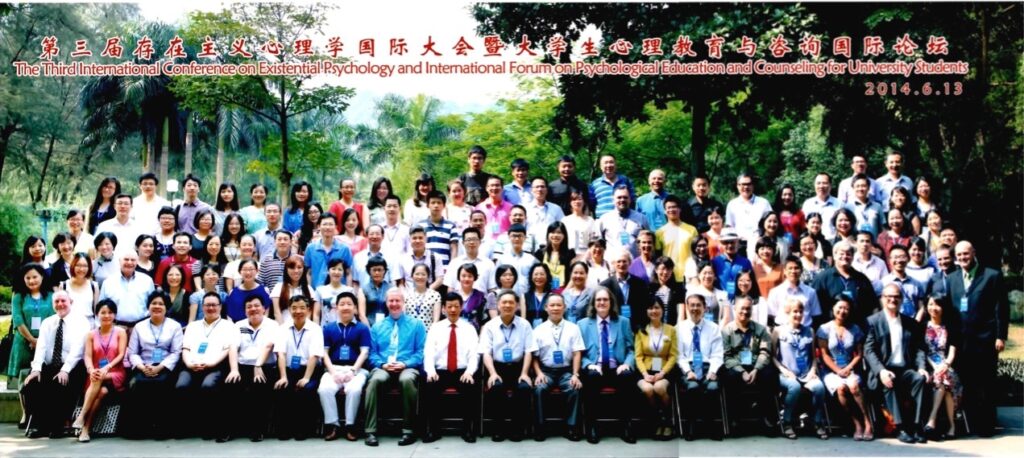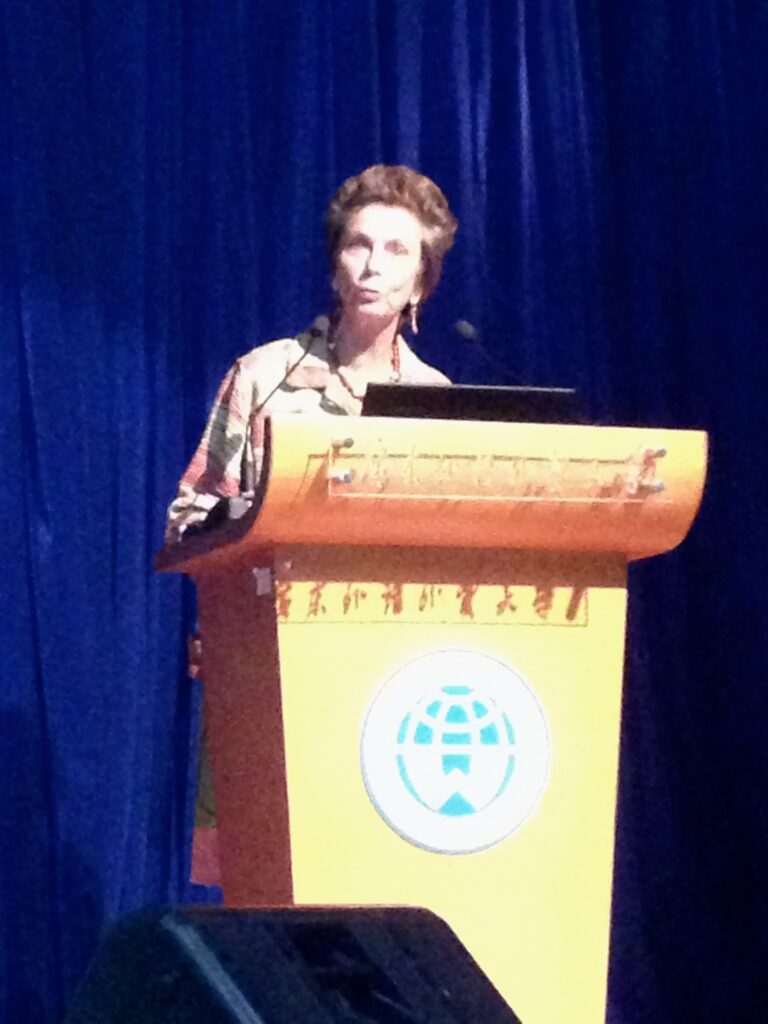This blog was originally posted on July 8, 2014 on the New Existentialist Blog. It was reposted here after the New Existentialist Blog was discontinued.
The Third International Conference on Existential Psychology was held June 13-15, 2014 in Guangzhou, China, hosted by the Guangdong University of Foreign Studies. The first International Conference on Existential Psychology (ICEP) began in 2010, and continues to be offered every other year at different locations in China. As with the first two conferences, the third conference was a great success, drawing presenters and attendees from around the world.

The ICEP has been an outgrowth of trainings and dialogues in China. From the outset, the focus has been on dialogue and exchange. Emphasis is placed on having a balance in presentations from Eastern and Western scholars and clinicians who, with the exception of the keynotes, are paired together to assure that each breakout session has different cultural perspectives represented. Presenters from the West are strongly encouraged to familiarize themselves with Eastern perspectives before submitting proposals and attending the conference, integrate Eastern perspectives into their presentations, and encourage feedback regarding ideas that may not fit with Eastern culture or require adaptation. Presentations from Eastern scholars often focus on comparisons between indigenous Eastern perspectives and existential psychology and the development of Eastern approaches that could be considered indigenous Eastern existential psychologies.
The structure of the conference has been intentionally constructed to promote dialogue. Whereas many academic conferences focus on the debate of ideas, which has it place, ICEP focuses on dialogue, exchange, and mutual growth. Similarly, whereas it is common for Western scholars to assert the superiority of their approach and encourage the application without adequate consideration of culture, ICEP encourages a more humble approach that recognizes the importance of cultural critique, adaptation, and mutual exchange.
The intentional development of this structure has been an important part of the ongoing success of the conference. Those who have attended from the East and the West regularly talk about this as more than just another academic conference; rather, they speak of ICEP as a life-changing experience.
While the academic portion of the ICEP is important, the most valuable experiences often are the relationships that develop between sessions and during the meals together. This is where the conversations deepen and expand. Most individuals who attend the conference remain in contact with several people they met at the conference, which extends the impact of the conference and depth of exchange.

Some of the deepest relationships are formed with the translators. At the third ICEP, we were blessed to have a number of very talented and dedicated translators. These were advanced students at Gungdong University of Foreign Studies who were studying to be professional translators. They also served as our hosts, greeting us at the airport, helping us find our ways around, and helping us with order our meals. In addition to guiding us and translating, they helped us better understand their culture.
Conference Highlights
It is hard to single out highlights of the conference as there were many, and it is only possible to attend one breakout session with several being offered concurrently. However, I will mention a few, focusing on the keynote addresses for this article, with the hopes that others who attended will also posts other highlights.
Mark Yang, who has long been a popular speaker at ICEP, gave a powerful keynote address on “Filial Piety and Love” from an existential perspective. This keynote, which provided an impressive balance of scholarly and emotional depth, was referred to by many as the most powerful keynote address. Mark, who is originally from Taiwan, lived and studied many years in the United States, and now has been living in China for many years, is increasingly identified as an important influential scholar and trainer in China and the United States.

Anne Hsu also gave a very emotionally powerful keynote leaving many people deeply moved. Anne, who is a therapist in Taiwan, spoke of love, acceptance, and cultural identity as someone who has lived and been part of different cultures. Xuefu Wang, who has given a keynote at each of the ICEP conferences, continued to develop and share ideas related to his zhi mian therapy approach, which has been identified as an indigenous existential approach to therapy.
Yang Shoagang, who has helped translate existential writings from the West, gave an important keynote address examining the similarities and differences between several Eastern philosophies and Western existential psychology. Shaogang encouraged a focus on the similarity, which he believes is much greater than the differences between Eastern thought and existential psychology. Heyong Shen, an influential Jungian scholar, also provided a keynote from the East on a psychology of love rooted in the ideas of Carl Jung, Carl Rogers, and Rollo May.

From the West, Myrtle Heery provided a keynote on “How to be a Guide to a Traveler on the Existential-Humanistic Journey.” Myrtle has been sought as a keynote speaker since the first conference; however, ICEP was never scheduled at a time that worked for her. Myrtle, who also was a discussant in the closing roundtable discussion and closing ceremonies, was a very popular speaker at the conference.
Erik Craig, who has been a popular speaker at all three ICEPs and also a keynote at the first conference, delivered another wonderful keynote address. This keynote, which was more personal and built upon his relationships with several mentors, was another keynote that was powerful on the scholarly and academic levels.
The other keynote from the West was given by Richard Bargdill, who provided an overview of key themes in existential psychology. For a number of the attendees of the conference, this was their first substantive exposure to existential psychology. Rich, who also has been a popular presenter at all three ICEPs, opened the conference with his keynote address.
Conclusion
The impact of the ICEP conferences has been quite impressive. Not only has it helped to develop existential psychology in China and the East, but it has also profoundly impacted existential therapists from the West and helped advance existential psychology.
~ Louis Hoffman
